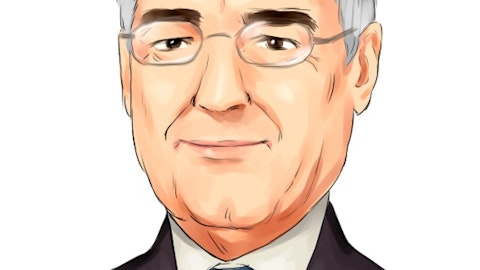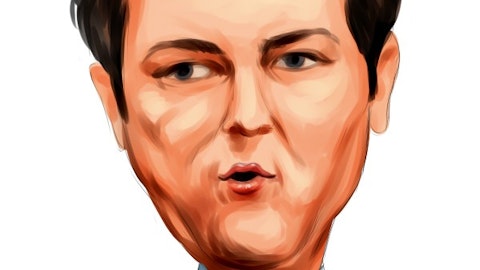Many investors are looking forward to the day Fannie Mae and Freddie Mac hold their offerings after being released from their conservatorships. However, before that can happen, several issues must be resolved.
During a presentation hosted by Odeon Capital last week, former Freddie Mac CEO Don Layton presented a long list of things he believes must be resolved before Fannie Mae and Freddie Mac can hold their offerings.
Fannie Mae offering: money owed to the government
For example, he noted that the Treasury will probably require that the government-sponsored enterprises pay fees in exchange for the government’s guarantee of mortgages. Layton believes that the Treasury Department will probably require at least 10% of Fannie’s and Freddie’s after-tax earnings to be paid as a fee. However, Congress might want a lot more than that, so that issue will need to be settled.

Q4 2019 hedge fund letters, conferences and more
Layton also said a new Preferred Stock Purchase Agreement will be required. He said several issues must be addressed in the agreement, but the most important issue is the government guarantee of the 30-year fixed-rate mortgages.
The elephant in the room is the Senior Preferred share class. Layton believes that by the time Fannie Mae and Freddie Mac hold their offering, Senior Preferred shares could amount to $240 billion in value. He said it’s still unclear whether the Senior Preferred shares will be converted to common shares, whether they will be considered to be repaid, or whether there will be some other result.
Questions about the Junior Preferred shares
In the same vein, questions also remain about what will happen to the Junior Preferred shares. If nothing is done with then and the Senior Preferred shares are eliminated, then the Junior Preferred shares will return to par. That would mean they would more than double in price. However, Layton also said some kind of settlement could be negotiated, or there could be a deal to trade the Junior Preferred shares for common shares.
Additionally, several lawsuits over the Senior and Junior Preferred shares and the net worth sweep are still pending in the courts. Before Fannie Mae and Freddie Mac can hold offerings, these lawsuits will have to be settled.
Other government issues in the Fannie Mae, Freddie Mac offerings
Layton also said the Treasury or the Federal Housing Finance Agency must state how it will get rid of its shares of Fannie and Freddie. He said at a minimum, they must get rid of 79.9% of them by exercising warrants. In some scenarios, like if the Senior Preferred shares are converted to common shares, the amount of the stake that must be shed could amount to 90% or more of all the shares that exist at the time of the offerings.
After the offerings are finished, the Treasury Department will probably be a majority or controlling majority owner of Fannie Mae and Freddie Mac. Layton believes the agency will have to state that it won’t exercise this power. Instead, he believes it will have to allow the public to guide the future of the recapitalized GSEs.
He also warned that if the GSEs exit conservatorship through “administrative means,” there is a risk that after the offering is complete, Congress could come back into the picture and change all the rules. He described this risk as “significant,” and it isn’t one anyone has talked about.
Additionally, if President Trump should lose the election in November, the entire process will probably have to start over at the beginning. The Treasury Department will have to agree to any plan for the GSEs to exit conservatorship. That means any change in the White House will mean that the entire process will be up for a new review.
Odds and ends in the Fannie Mae, Freddie Mac offerings
One other big issue in Fannie and Freddie Mac that’s been discussed lately is the need for a new capital rule for the companies. If the amount of capital that’s required is very high, then the guarantee fees charged by the GSEs will have to increase.And if that doesn’t happen, the return on equity in the businesses will plunge.
If the Fannie Mae and Freddie Mac won’t be well-capitalized after their offerings, there will have to be a consent decree allowing them to operate. Layton said at one extreme, the decree could be a “de facto new conservatorship in which investors have little say.”
The Treasury Department has also requested that some studies be done on certain issues involving the GSEs. For example, the agency wants to determine whether Fannie and Freddie should not be allowed to do investor properties or second homes. Treasury also wants to determine if the GSEs should issue their mortgage-backed securities through Ginnie Mae instead of the common securitization platform.
Finally, Fannie Mae and Freddie Mac will have to conduct their offerings in such a way that one capital raise doesn’t destroy the value of the other’s.
A non-dramatic approach
While the FHFA has had plenty to say about what should happen to Fannie and Freddie, the Treasury Department hasn’t been talking. Treasury Secretary Steven Mnuchin did say that they have an obligation to the government, but that’s all the agency has had to say.
Odeon analyst Dick Bove believes the Treasury would “like to lose some of these lawsuits in order to open a dialogue with shareholders.” However, Layton doesn’t see that as realistic. Instead, he believes a “non-dramatic approach” would be easier.
He notes that the GSEs are very much reformed. The biggest issue they face now is capital rather than their business model. Layton suggests a non-dramatic approaching would be to establish them as “national utilities,” allowing them to build their capital over time. This is what is happening right now.
How will investors value Fannie Mae, Freddie Mac in an offering?
Layton is also focused on the attitude of investors, and Bove is also thinking about it.
“Unless the investor is given a way to value these companies – by eliminating all significant uncertainties about their business model and the financial arrangements required for conservatorship exit – that are now in play, there will be no offering,” Bove wrote. “He sees a great deal of work to be done to bring the investors, world-wide, to the conclusion that they can value these companies, which is needed for investors to believe there is money to be made here.”
Bove noted that no one has explained how investors can make money in Fannie Mae and Freddie Mac when the stock offering occurs. He noted that they are offering a smaller range of products now. Further, the profit they earn on each transaction has been cut by their credit risk agreements.
Disclosure: None





